What are you listening to and WHY might anyone be interested? (Vol.IX)
Posted by: Richard Dane on 01 January 2013
With 2013 upon us, it's time to start a fresh thread. I've gone back to an earlier thread title because often the "why" is the most interesting part of the post.
Anyway, links:
Volume VIII: https://forums.naimaudio.com/di...nt/12970396056050819
Volume VII: https://forums.naimaudio.com/di...6878604287751/page/1
Volume VI: https://forums.naimaudio.com/di...ent/1566878604097229
Volume V: https://forums.naimaudio.com/di...ent/1566878605140495
Volume IV: https://forums.naimaudio.com/di...ent/1566878605795042
Volume III: https://forums.naimaudio.com/di...ent/1566878607309474
Volume II: https://forums.naimaudio.com/di...ent/1566878606245043
Volume I: https://forums.naimaudio.com/di...ent/1566878607464290
UK vinyl.
Beethoven Quartet in F Opus 135. Beethoven's Quartet No 16, and his last - yet it is short and classically proportioned, full of a lifetimes wisdom, and ranges from the joyous to the solemn and back to the joyful in its less than thirty minutes. My favourite performance remains the venerable 1930s recording made for EMI in Abbey Road. The transfer is superb.
ATB from George

Superb live set this. I've often wondered about the earlier 'live' album....G
I agree with you about the Prelude in B Minor. A fantastic piece of music that I also hold in high regard. Siloti's transcription of Bach's Adagio from the Sonata for Violin and Keyboard in F Minor is another winner for me too but I don't know if I've ever heard any recording of it.
The original Prelude was in E minor and was from the Clavier Büchlein für Wilhelm Friedemann Bach. The problem for me is that I've never heard a totally satisfying rendition of the Prelude. I've only ever heard Sokolov, Gourari, and Gilels. Gilels comes the closest for me to my preferences.
You say you like the quicker tempo? Referring to Siloti's directions for tempo (50 per half note) and then listening to the above three pianist would make you believe they are all pokers. Once in a while for an adrenalin boost I try to follow Siloti which is significantly faster than even Sokolov (maybe 20 or 25% faster?). Based on these two tempo extremes alone you get totally different character of the piece either way. It's interesting to do this once in a while but I find the slower tempo more suitable.
There is a lot of Russian tradition around how this piece should be played and so I'm surprised at how three Russian pianists can delivery three very different results.
Gourari - I applaud for having the most colour. The music calls for gentle swells - rising and falling while slowly build to a climax - and then dying away. Trouble is, she's OK until 1/4 way into the second pass and then I think she loses direction. Overall, I'm not convinced by her reading. Too many weak points and inconsistencies. She rolls her left hand in both passes.
Sokolov - well, I'm surprised by this but I'm not convinced by his reading overall either. While wonderfully focused and unerring I find it to overbearing or strong in places where it shouldn't be and with little variation throughout. It would have been better for me had he been able to convey a real sense or difference between piano and forte and everything in between. By the way, his timing is a little quicker for a reason as he drops two bars off before returning on the second pass. He also plays the left hand chords generally solid for both passes.
Gilels - I think he is the closest in tempo and style to what I would do. Gilels is definitely more refined (technically and interpretively) than either Sokolov or Gourari. Gilels follows the Russian tradition most closely and plays the left hand chords solid on the first pass and rolls them on the second pass. You want to mainly hear the sixteeth-note figuration on the first pass and the inner melody voice (single note) on the second pass. Also, on the second pass, starting mid-bar (at about 2'-29") listen how that final D signals the climax and he changes the character at the same time by halving the speed of his left hand roll and just floating that middle voice perfectly above everything else as it descends all the way down through a ritenuto to the end. Just magical, extraordinary and sublime in my opinion.
https://www.youtube.com/watch?v=Yu06WnXlPCY
Thanks very much for the explanations and the link to the Gilels performance. Agreed this is magical. I like the Rachmaninov performances on there. Do you have any discs to recommend there ? Perhaps the following?
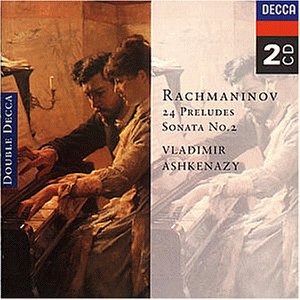
What do you think of the performances from Historic Russian Archives (brillaint classics). I particularly like the Hammerklavier sonata in the Beethoven set.
As I said on another thread though, I have seen Sokolov perform several times now and I am mostly drawn into what ever he is playing. I had a similar experience with Lupu playing Schuberts D845 sonata (a piece very close to him) and Papillons. Less so with other piano recitals.
I found a couple of CDs with the F-minor sonata for keyboard and violin transcription on Naxos and some other label. Do you have any recommendations here.

Regards,
Mark
Hi Mark,
I'm going to have to defer a full response for the future as the last few days and this weekend are proving difficult to find enough time. Referring only to the complete Rachmaninov Preludes sets only, I have all the usual suspects (like Ashkenazy, Osborne, Hayroudinoff, Lugansky, Berezovsky, Alexeev, Shelley, Collard etc) and I just cycle through them while adding new ones as often as I can. Ashkenazy is a good choice but then he wouldn't be my only choice either (I'm never good at picking only that one definitive album).
In the last month, for complete sets, I added a young pianist, Guillaume Vincent (first recording on Naive) and from 2007, Eldar Nebolsin on Naxos. Both complete shots in the dark for me and even crossing a line for me as I generally never buy Naxos. Both are interesting and have their individual pluses and minuses and I'm not disappointed with either. Of the two though, if I could only have one, I found the Nebolsin to be extraordinary and would heartily recommend it to you (hopefully to eventually go along with many others).
Thanks for pointing out the Bach Transcriptions disc. I'm going to look into this and other discs I can find. It's funny as I never thought about looking for these transcriptions before as I didn't think too many were recorded. I have a rather large book of transcriptions and arrangement by Siloti and so far I've only spent time with the B minor prelude and that Adagio from F minor violin/keyboard sonata as well as Mozarts variations on Ah! Vous dirai-je, maman (Twinkle Twinkle..which my son is actually learning right now but from the Mozart score). The treasures though for me are the many Bach transcriptions from Organ or Cantatas etc. To be able to play this music in the privacy of ones home is really the point and this is why transcriptions are vital and so important in the act of sharing music.
The Adagio though has such symbolism in it with its opposing forces of some heavy burden pushing downward (right hand) and the web of support pushing up or at least telling us where that line is through the left hand and the continuous demisemiquavers which have to be played very lightly as a harpsichord might be. The piece starts in C minor and suddenly ends on A-flat major tells you who won the struggle (good over evil). The few seconds I heard of the Lauriala is OK and a valid way although I thought his Adagio was tending to the slow side and again far slower than what Siloti has marked it. Have a quick listen on JPC.de and put in "Arthur Grumiaux, Christiane Jaccottet" as a search under Classic (disc one, track 19). A perfect example of the heaviness or tenuto of the burden supported by that symbolic threshold or base line that separates good and evil through a web of notes. It tries to keep pushing downward but will give up eventually.
The rest of Lauriala's album is of interest to me though especially for works like the D'albert transcription of the Passacaglia in C Minor or the Kabalevsky transcription of the D Minor Toccata and Fugue.
OK, I intended to only be brief as I'm now late for where I'm supposed to be. I'm just so fascinated by music and once going I can't stop.
Regards,
Doug
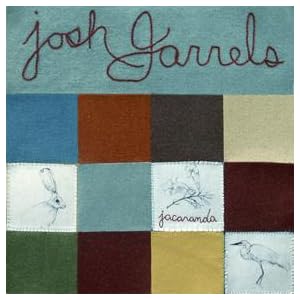
Hi Mark,
I'm going to have to defer a full response for the future as the last few days and this weekend are proving difficult to find enough time. Referring only to the complete Rachmaninov Preludes sets only, I have all the usual suspects (like Ashkenazy, Osborne, Hayroudinoff, Lugansky, Berezovsky, Alexeev, Shelley, Collard etc) and I just cycle through them while adding new ones as often as I can. Ashkenazy is a good choice but then he wouldn't be my only choice either (I'm never good at picking only that one definitive album).
In the last month, for complete sets, I added a young pianist, Guillaume Vincent (first recording on Naive) and from 2007, Eldar Nebolsin on Naxos. Both complete shots in the dark for me and even crossing a line for me as I generally never buy Naxos. Both are interesting and have their individual pluses and minuses and I'm not disappointed with either. Of the two though, if I could only have one, I found the Nebolsin to be extraordinary and would heartily recommend it to you (hopefully to eventually go along with many others).
Thanks for pointing out the Bach Transcriptions disc. I'm going to look into this and other discs I can find. It's funny as I never thought about looking for these transcriptions before as I didn't think too many were recorded. I have a rather large book of transcriptions and arrangement by Siloti and so far I've only spent time with the B minor prelude and that Adagio from F minor violin/keyboard sonata as well as Mozarts variations on Ah! Vous dirai-je, maman (Twinkle Twinkle..which my son is actually learning right now but from the Mozart score). The treasures though for me are the many Bach transcriptions from Organ or Cantatas etc. To be able to play this music in the privacy of ones home is really the point and this is why transcriptions are vital and so important in the act of sharing music.
The Adagio though has such symbolism in it with its opposing forces of some heavy burden pushing downward (right hand) and the web of support pushing up or at least telling us where that line is through the left hand and the continuous demisemiquavers which have to be played very lightly as a harpsichord might be. The piece starts in C minor and suddenly ends on A-flat major tells you who won the struggle (good over evil). The few seconds I heard of the Lauriala is OK and a valid way although I thought his Adagio was tending to the slow side and again far slower than what Siloti has marked it. Have a quick listen on JPC.de and put in "Arthur Grumiaux, Christiane Jaccottet" as a search under Classic (disc one, track 19). A perfect example of the heaviness or tenuto of the burden supported by that symbolic threshold or base line that separates good and evil through a web of notes. It tries to keep pushing downward but will give up eventually.
The rest of Lauriala's album is of interest to me though especially for works like the D'albert transcription of the Passacaglia in C Minor or the Kabalevsky transcription of the D Minor Toccata and Fugue.
OK, I intended to only be brief as I'm now late for where I'm supposed to be. I'm just so fascinated by music and once going I can't stop.
Regards,
Doug
Hello Doug,
I will order the discs with Ashkenazy including the Russian cello sonatas disc with Lynn Harrell.
I did find another disc for the Bach transcriptions but then I seem to have lost it. I will try again to find it and let you know.
We (Geoff P and myself) were going to see Berezovsky at the Fritz Phillips musiekcentrum in Eindhoven, but unfortunately he was ill and the concert was cancelled. He will perform the same program soon but without the Op.10 No.3 sonata from LvB. Shame that I cannot go to this as I would certainly like to see him.
http://www.muziekgebouweindhov...ris-berezovsky-piano
Likewise (in the same weekend) we were going to see Pieter Wispelwey and a pianist whos name escapes me performing the complete works for cello and piano of LvB. However the pianist was ill and Pieter Wispelwey played instead the complete cello suites of J.S.Bach. Wonderful. We were at least lucky to hear the Bach cello suites performed this wonderful cellist, but I was so looking forward to the complete works for cello and piano. Never mind, I hope that this will reappear next season.
I have seen Steven Osborne live quite recently performing Britten's piano concerto with the Frankfurt Opern and Museums Orchestra. The link contains the complete program.
http://www.alteoper.de/de/prog...ung.php?id=255383357
The other pianists that you mention I am not familar with.
I don't have the Grumiaux, Jaccottet performance. I do like Jaccottet and have some of her French Suite performances in Vinyl. I do have the Mullova, Dantone and Podger, Pinnock discs, which I will give another listen to since I have not listened to them for some time now. I also have the same on vinyl with Schneiderhan, Richter on DG Archiv.
Once again Doug, thank you for your time and ideas.
Regards,
Mark

MCA 1977 vinyl. Great percussion from John Hiseman and guitar from Gary Moore. The synth gives a very prog feel compared to the other Colosseum records I own. I like it.
Sorting my vinyl out this morning, came across this fine album:
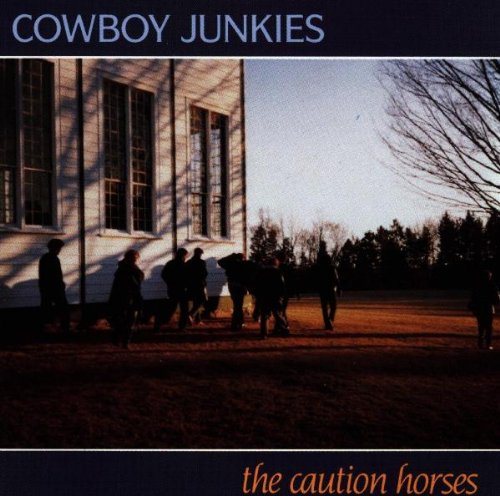
Original Vinyl
G
On vinyl.

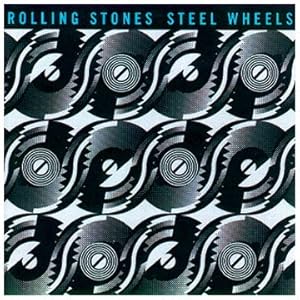
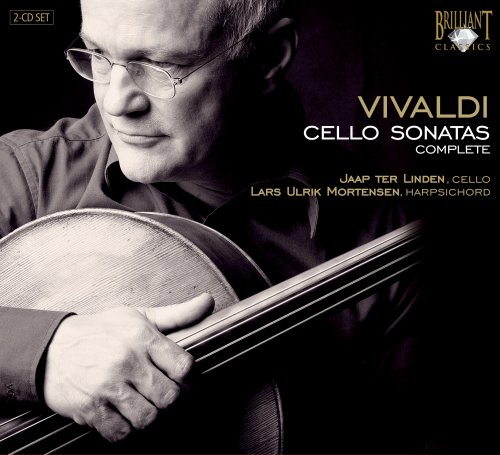
Vivaldi's sonatas for cello and continuo are modest, introvert works that lack the flamboyant style he is known for. This recording is quite good, with Ter Linden playing in a generally laid back style that suits the music. I wish Mortensen had tried a little harder, though: he seems content to provide a lazy-ish sonic backdrop for Ter Linden.
Cheers,
EJ

Excellent Mono Vinyl.
G

Cheers
-Aleg

Schubert's impromptus, under Radu Lupu's incomparable hands
Cheers,
EJ
In memory of Len Tibbits,
Brother of Harry Tibbits,
He died shuvling Gravel.
Richard
And now it looks like it's going to be a Traffic / Steve Winwood sort of evening.

![]()
Richard

A very first Johann Jacob Froberger (1616-1667) disc of Suites and Toccatas played beautifully by the young Rumanian Alina Rotaru on an original Ruckers harpsichord from 1623/1745.
I did find another disc for the Bach transcriptions but then I seem to have lost it. I will try again to find it and let you know.
I found the other disc on Hyperion (Hamish Milne). You can hear the complete B minor prelude on Hamish Milne's personal site under discography


Regards,
Mark
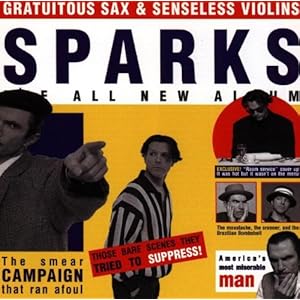
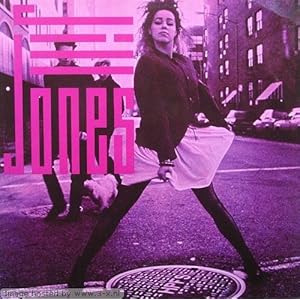
Really enjoying the first listen of this LP
The Helio Sequence - Negotiations
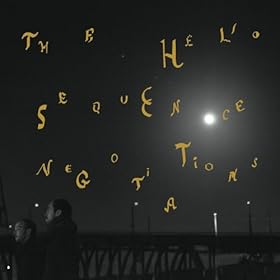
First listen.
Lou reed - The Raven. Guests include: Laurie Anderson, David Bowie, Antony Hegarty, Steve Buscemi and Willem Dafoe. I really love this album.
Fantastic 60s British Blues.
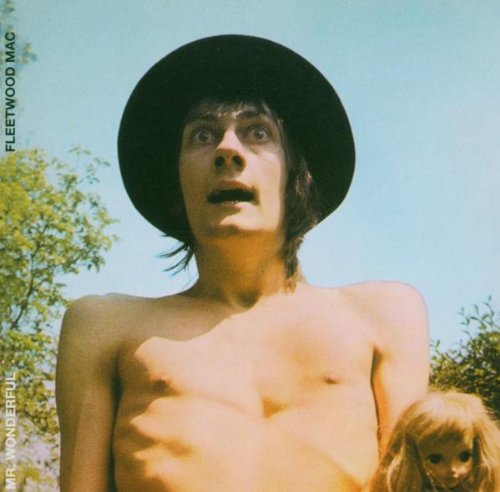
G



